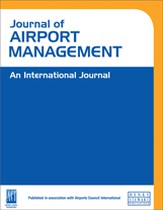Airport security: Lessons learned from the COVID-19 pandemic
Abstract
Reflecting on the first two years of the COVID-19 pandemic, we can see that, even though we have faced war, terror attacks, extreme nature and weather events, economic depressions and more, none of them affected global economies, our freedom of travel, our personal and mental health as fast and as deeply as the COVID-19 pandemic. Once considered a local event to China, it rapidly spread across the globe within a few months, bringing travel between countries to a halt and interfering catastrophically with the aviation industry. Airports and airlines soon discovered that not only were they on the brink of bankruptcy, they also needed furlough their employees, shut down terminals and fleets and, in race to establish new methodologies for public health demands to try to regain some aviation and commerce activity. The airport security sector also suffered, losing manpower, struggling with infected employees, involving staff in safety related duties which were not part of their job description and seeing new stakeholders to set the ‘new security’ agenda for their home court. Focus was diverted from counter-terrorism. Obviously, due to the circumstances, direct operation and development budgets were frozen or re-allocated, so work plans and an array of improvements are now under consideration. The most agile airports set up innovation labs to identy updated technological solutions in supporting daily efforts, especially with the public demand for contactless travel. Soon, some regulators began to introduce regulations, and are trying to set the industry to work on gold standards and platforms, pursuing governmental official confidence that will, in time, translate into authorisation to operate safe travels (especially on international routes, as in some countries domestic traffic has a reasonable volume). This paper analyses civil aviation actors and vectors throughout the pandemic, and offers predictions for the near future trends, especially for aviation security directors.
The full article is available to subscribers to the journal.
Author's Biography
Roni Tidhar is Head of International Consulting Services — Commercial Branch for the Israel Airports Authority. He has been a keynote speaker at international conferences and has written about homeland security subjects for professional publications worldwide. He has a BA in political science and Far East studies from the Hebrew University in Jerusalem and an MA in security and diplomacy for senior managers from Tel Aviv University. He is a senior officer for the Israel Defense Forces reserves, and has extensive field experience in both the military and as a volunteer police squad commander.
